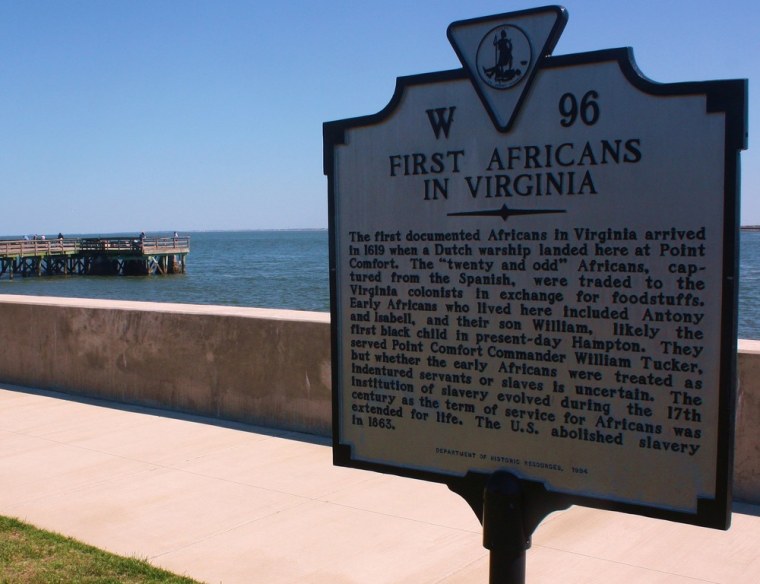The U.S. Army handed over responsibility on Thursday for managing historic Fort Monroe to Virginia, which wants to turn much of the fort's valuable land at the mouth of the Chesapeake Bay into a national park.
The fort and the land it occupies are historically significant because they are where the first African slaves landed in the New World, where a Union general granted refuge to runaway slaves and where Confederate President Jefferson Davis was once imprisoned in the moated fortress following the Civil War.
"The Army's departure opens these doors to a much broader audience — the American people," Gen. Robert W. Cone, commanding general of the Army's Training and Doctrine Command, said during a deactivation ceremony. "This historic place can now serve the greater good by educating our youngsters about why this nation, why we are as a people, truly exceptional."
The fort was ordered closed in 2005 as part of a base realignment plan designed to cut costs. The fort has been in continuous operation since 1823 and in recent decades served as the home of the Army's Training and Doctrine Command. Many of the fort's personnel are transferring to nearby Fort Eustis and the fort is being placed under the control of the state's Fort Monroe Authority. Army officials handed over a giant key to the fort to Virginia Gov. Bob McDonnell, symbolizing the transfer.
Open to the public
"The fort is now open," authority executive director Glenn Oder said following the ceremony. "It's going to be a very safe and secure and enjoyable place to visit. There will not be an ID check anymore. It'll be free access to the public."
The fort is much different than a traditional military base, containing more than 170 historic buildings, eight miles of waterfront and a 332-slip marina. The parts of the fort the state doesn't want turned into a national park will be used for housing and other developments that are expected to remain in line with the area's architecture.
The Army is in the process of turning over ownership of its lands and buildings to Virginia, although that likely won't be completed until January. Before the ownership transfer is complete, Virginia officials are urging President Barack Obama to use the Antiquities Act to declare the fort a national monument and place it under federal control.
"We're very optimistic," McDonnell said following Thursday's deactivation ceremony. "I'm hoping we're talking weeks to a month as opposed to anything longer."
Interior Secretary Ken Salazar issued a statement saying the National Park Service is working quickly to evaluate whether to make parts of the fort a national park.
Steeped in history
"We have heard loud and clear from the local community, Commonwealth and federal officials, and stakeholders everywhere that Fort Monroe is a place of unique historical and cultural significance that merits protection — and we agree," Salazar said. "Fort Monroe helps tell the compelling story of our nation's arc from the Civil War to Civil Rights. With such a rich history, it's no wonder that so many feel passionately about ensuring the site is preserved for future generations."
Legislation that has the bipartisan support of Virginia's delegation is also pending in Congress to designate the fort a national park.
"Fort Monroe is a truly unique place. Beyond its rich military history, it tells the story of America's dark journey with slavery, and though painful, this poignant story must be preserved to pass to future generations of Americans," U.S. Rep. Scott Rigell, whose district includes the fort, said in a statement Thursday.
